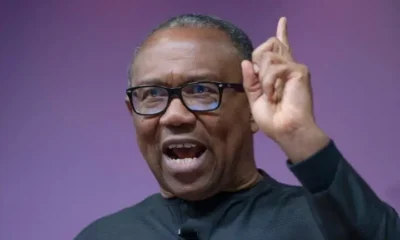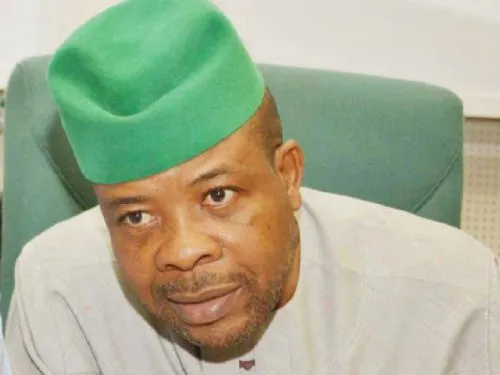“Non-transmission of results is a problem because INEC rules have constitutional flavour. If you make rules, you must follow it. And there is a Supreme Court decision that says that INEC is duty bound to obey their own guidelines and if they don’t it is a violation of the electoral act and the constitution.”
These were the exact words of Michael Aondoakaa, former Attorney General of the Federation and Minister of Justice (AGF-MoJ), on Tuesday, as he weighed in on the current political situation in the country, particularly the outcome of the 2023 general election and the ongoing challenges instituted in court following the hiccups that trailed the outcome.
Aondoakaa bemoaned a situation where petitioners usually abandoned challenging the processes, procedures and guidelines that led to the elections, in preference to the results alone, saying that this had not been helpful adding that those who perpetrated electoral infractions must be punished alongside cancellation of such elections as a deterrent.
The former Minister, who was a guest of The Morning Show, a breakfast programme on Arise Television on Tuesday, said: “Our attitude has always been to scrutinise the outcome of the result. This person scored this number and that person scored this and therefore the infractions that occurres are targeted on the result – who has the majority. But the main corruption that occurs in an electoral process is the refusal to follow the procedures that leads to that result.
“Nobody will complain of an election if the procedure leading to that result that produced the winner is followed. Nobody will complain. If you see all the complaints, it is that the procedure that is supposed to follow like this, is not done. All the election cases, the complaint may not be about the overall result. But if you go to court the target is prove whether this overall result is correct or not forgetting that the main corruption is within the foundation upon which those results occur.
“An opportunity has come for the court to give a direct interpretation of that and, which is inbetween the two-thirds of the federation and the the Federal Capital. If they say it is conjunctive, it means that it is otherwise. But apart from this two rules, there is also the mischief rule with which the court can override what I’m saying and try to look at what is the purpose of what is going to happen, what is the mischief. The Supreme Court is a court of policy and law. So, they may decide to look at other things differently.
“The emphasis from us lawyers has been the way we present our petitions and the judges cannot go out of their way from what is presented to them. In most cases we go to court and we say at the conclusion, declare us the winner because we won majority of lawful votes. Basically the judge will not concern himself with the lawful votes and who has the majority of the lawful votes.
“We have not said nullify elections on the grounds that the procedure has not been followed to give the court an opportunity to say, look, you said this has to be done before an election could be said to be credible. You have not done so and so we nullify the election on that score. Most of the petitioners and us, our desire is to be declared the winner. And what we canvass in the court is what the court gives us. We lawyers, sometimes we fear to attack the procedure, because if we do that, we also will not be declared the winner and the election will have to be done afresh.
“But, the procedure is more important than the result or as important as the result because a corrupt procedure has already corrupted the electoral process and then violates the constitution because there cannot be a free and fair election otherwise. For instance, if INEC says, if I finish my election at the polling booth I’ll declare my result there and transmit the result first, then I’ll take the results to the collation centre and INEC does not do that, has it followed the procedure?
“These are the way we have to clean the system, because we cannot build a house without a foundation. Take the issue of Adamawa. Look at how the procedure was about to be violated and look how they had come back and do the right thing. But the initial move was I don’t care. Once I announce the results let them go to court.
“This is the time we should lay a solid foundation in this country. Look at the procedure. The Supreme Court has said in several cases that if there is a procedure of doing something and you deviate from that procedure, the end result should be vitiated. If there is a procedure to conducting an election and suddenly it is deviated from, don’t you think that it is important for us as lawyers to attack these procedures and make sure the right thing to be done.
“I thought we should not be in a haste to say let us do everything and finish before May 29. I said, let us invite the court to say let us look at these procedures and give us a verdict whether these procedures have substantially affected the results of these elections. Let us hear what the court will say. If they say it has substantially affected the results, then next time people will not do it.
“By common sense, there could be unforeseen circumstances, which if it happens, you tell the people what happened. But you keep silent, it is only the court that will interpret why you kept everyone in darkness. That is why everybody. INEC regulation said clearly that you vote, results will be announced, and copies will be scanned, sent to the BVAS, sent to the IReV, and then it is after you do that the results will be taken for collation.
“These are the condition precedent to take the results to the collation centre. I read the regulation and it used Shall, which means one condition is certain, you must send the results to the electronic portal before the result is announced. That was my opinion when I saw the Shall. That goes to the constitution. Does this regulation fit into the laws that can be obeyed and if they’re violated, it does not matter?
“Before now, the court said INEC’s regulations, guidelines and even circulars have constitutional flavour. They flow direct from the constitution and violation of those guidelines and rules is a violation of the constitution. And the court went further to say INEC staff are bound by the guidelines and regulations. I don’t know what the courts will say now. It is INEC which will tell the court why they made guidelines and deviated from it. Then the Supreme Court will look at their previous decisions that said INEC staff ought to follow their guidelines”
Aondoakaa, rebuffed the argument for more regulations and reforms of electoral laws, stating that the laws had been tampered with too frequently, and that instead, the focus should be on punishment for those who chose to break the laws, such as were experienced in the last elections.
“These are human problems. It is the punishment given to those actors that will create a deterrence. The laws are fair enough for a person who wishes to do the right thing. But a person with an evil mind, who is bent on violating the law, like the Resident Electoral Commissioner in Adamawa, who damned the consequences, the only deterrence is punishment, severe punishment. If say you’ll change the method and you bring any other method, that kind of deviant person, plays that role, will you change again. The law will have to take its course. The man will go to jail and no other electoral officer will do that kind of thing.”

 News1 week ago
News1 week ago
 News2 weeks ago
News2 weeks ago
 News1 day ago
News1 day ago
 News2 weeks ago
News2 weeks ago
 Editorial2 weeks ago
Editorial2 weeks ago
 Editorial3 weeks ago
Editorial3 weeks ago
 News1 week ago
News1 week ago
 News3 weeks ago
News3 weeks ago












